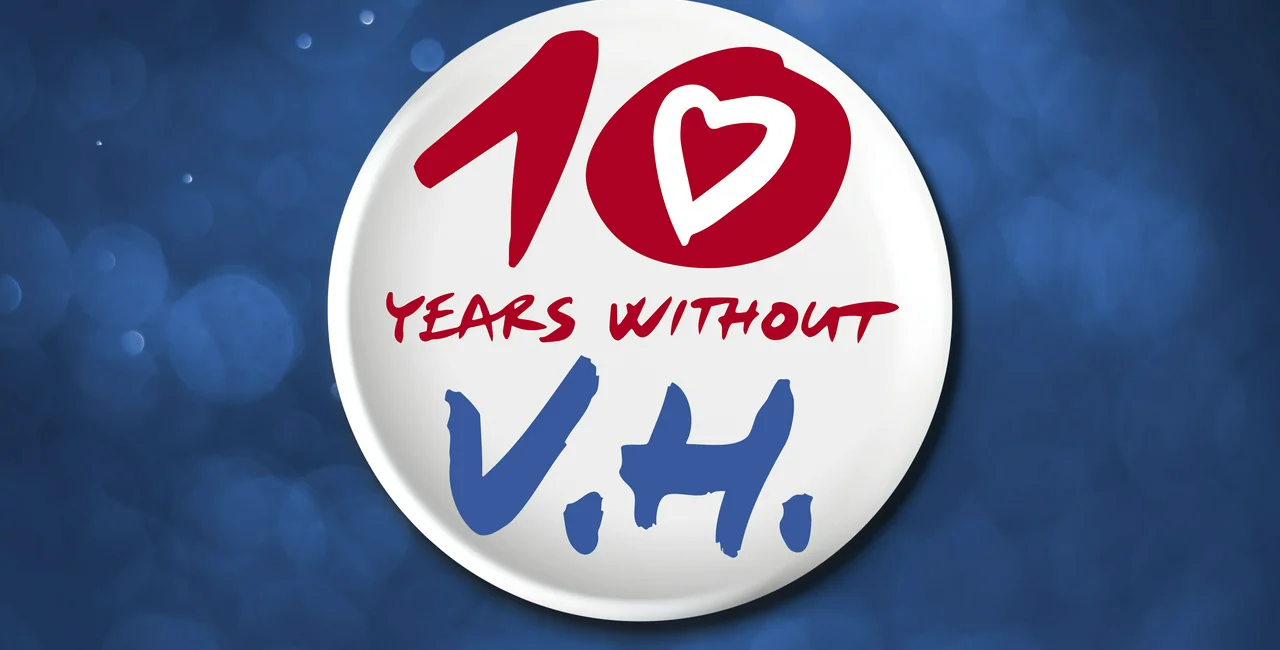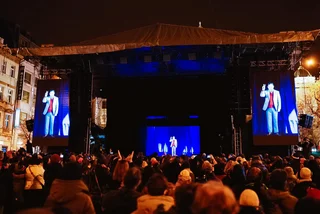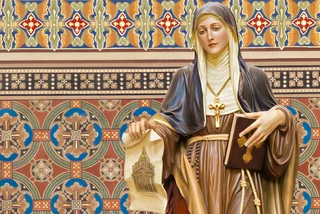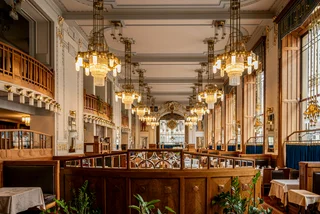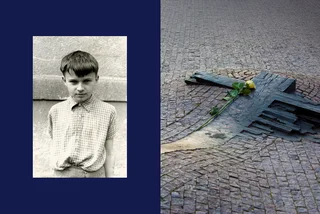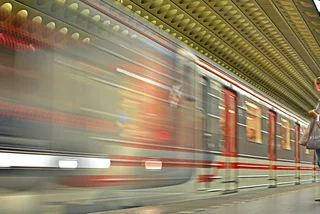Playwright and president Václav Havel died 10 years ago on Dec. 18. The anniversary will be marked with concerts, film screenings, an exhibition, a procession, and more taking place across Prague.
The commemorative project called 10 Years without V. H. (10 let bez V. H.) will have some of its main events in the Lucerna Passage complex, a structure that was actually built by Havel’s grandfather and which is still owned by the Havel family.
PARTNER ARTICLE
The logo that ties all the events together was designed by Pavel Šťastný, who made the original logo for the Civic Forum, an important post-1989 political group. He also made the main designs for the permanent mural on the Lennon Wall.

Lucerna Passage itself will have an exhibition of both famous and relatively unknown photos of Havel. A concert, starting at 6 pm, will take place in Lucerna Music Bar, with musical acts alternating with speakers who will talk about Havel’s life and legacy. The lineup has not been announced. More details will be posted on Facebook when they become available.
Film screenings will take place all day in kino Lucerna. Tickets are free but must be picked up at the box office.
The highlight will be the premiere of the award-winning documentary “The Art of Dissent,” which is primarily in English. The film, which will also be broadcast on Czech TV, shows how the arts responded to the 1968 Soviet-led invasion of Czechoslovakia.
The film by director James Dean Le Sueur mixes historical footage of the Rolling Stones, Shirley Bassey, Frank Zappa, and the Moody Blues, plus politicians, and authors with recent interviews from the president’s brother Ivan Havel, biographer Michael Zantovský, historian Timothy Garton Ash, musician and lyricist Paul Wilson, musician Vratislav Brabenec and others.
The film program also includes a screening of the 2020 biopic “Havel” and Petr Jančárek’s documentary “Václav Havel, Prague – Castle.” These films are primarily in Czech, with some parts in English.
Rock Café on Národní třída will host a discussion about Havel (in Czech), followed by a concert. As with the Lucerna concert, the lineup has not yet been announced. Entry is free.
The traditional procession “Heart to the Castle” (Srdce na Hrad) will start at Hradčanské náměstí, from where a heart will first be brought to Rock Café and then continue to Lucerna Music Bar, where the heart will be brought to the stage during the concert. A heart was one of the symbols used by Havel, and it often appeared with his signature. It also became the motif for a sculpture at náměstí Václava Havla.
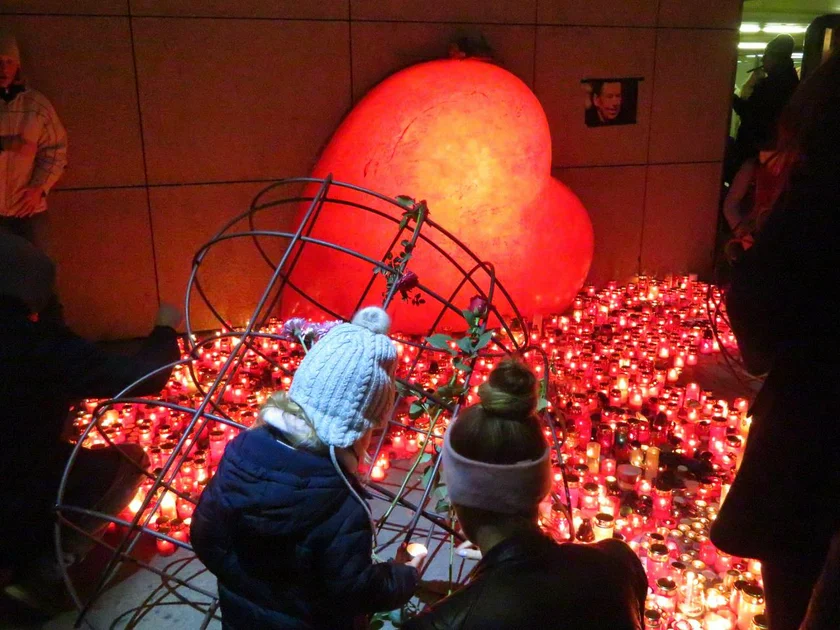
A video project is also underway, and many of the videos will appear for the first time on social media on Dec. 18. People who either knew Havel or just were inspired by him were all asked the same three questions: What comes to your mind when you say Václav Havel? What is your strongest memory of him? What would you say to him if you could talk to him today?
People who have already answered include former Austrian President Heinz Fischer and British playwright and Oscar-winning screenwriter Tom Stoppard, future Prime Minister Petr Fiala, artist Pavel Šťastný, economist Tomáš Sedláček, musician and activist Michael Kocáb, singer Petr Kolář, sociologist Fedor Gál. And many others.
Havel died on Dec. 18, 2011, at his country home in Hrádeček. He had suffered long-term health problems, especially related to his lungs, ever since he had been imprisoned as a dissident in the 1970s and early 1980s. He has also been a lifelong smoker.
Havel had been involved in theater before the 1968 invasion, but due to his political activities, he was banned from the stage during the era of normalization. His plays were circulated and performed clandestinely. He became well-known internationally for the Charter 77 manifesto and for helping to form the Committee for the Defense of the Unjustly Prosecuted in 1979.

In 1988 he was among the dissidents to meet with François Mitterrand in Prague at the French Embassy. It was an important step toward legitimizing the opposition. In 1989, Havel would emerge as one of the leaders of the Velvet Revolution and subsequently become the first post-communist president of Czechoslovakia. He served from Dec. 29, 1989, to July 20, 1992, and then was president of the Czech Republic from Feb. 2, 1993, to Feb. 2, 2003.
After retiring from politics, he continued to advocate for human rights. He also returned to writing plays and directed the film “Leaving” (Odcházení), based on his last major play.
Since his death, multiple streets and squares around the world have been named for him, and an international network of memorial benches called Havel's Places has been put in place.












 Reading time: 3 minutes
Reading time: 3 minutes 